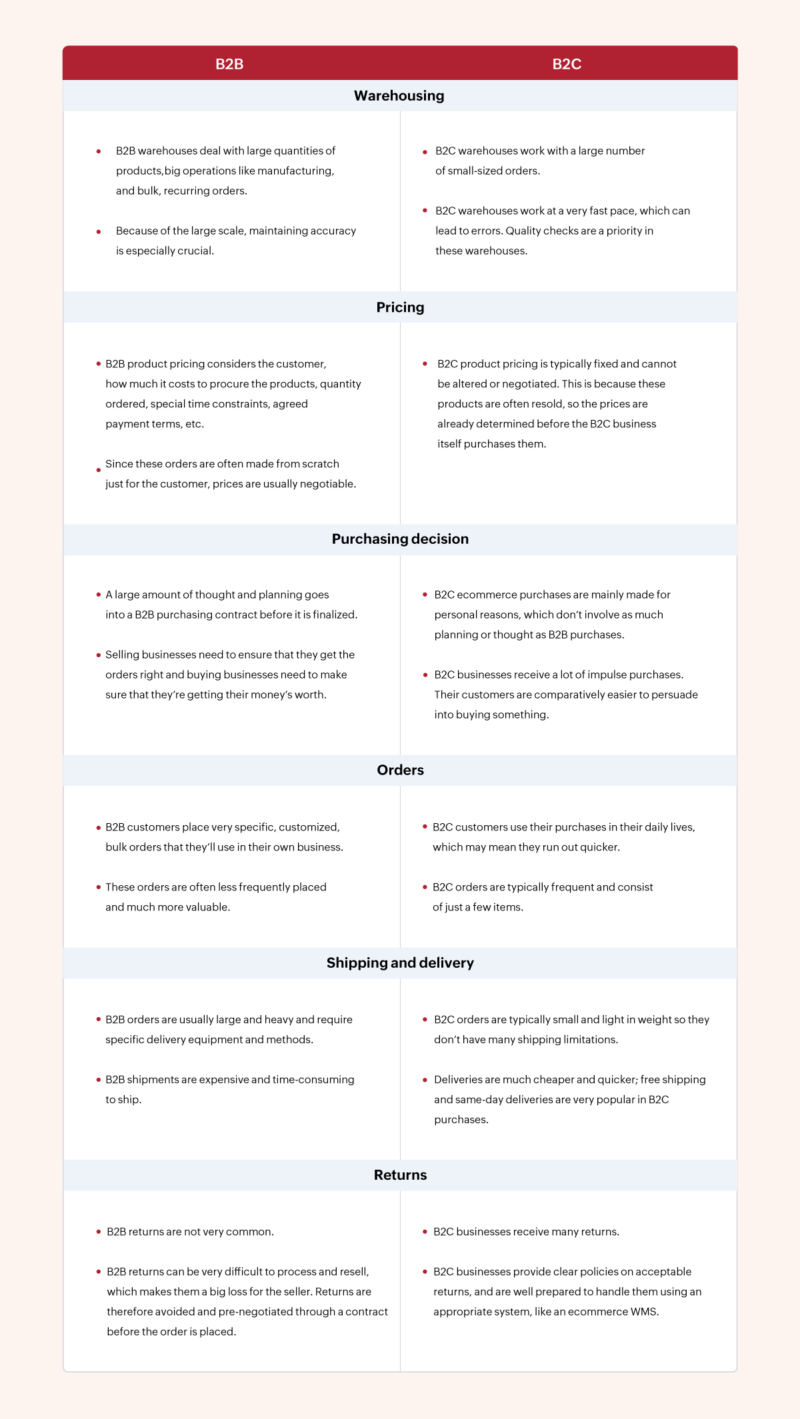Traditionally, B2B (business-to-business) businesses used warehouses more than any other business model. But with new B2C (business-to-consumer) ecommerce websites popping up on the internet every day, warehousing has spread beyond B2B. When discussing B2B and B2C, the most obvious difference is the fact that the former model sells to other businesses, whereas the latter sells directly to individual consumers. While this is an important distinction, it certainly isn’t the only one when it comes to warehousing and fulfillment.
Warehouse operations and order fulfillment both depend on the type of inventory and processes that the warehouse is facilitating. So although B2B and B2C businesses sound similar, with the exception of their end customer, the two business models actually operate very differently in a warehouse because they deal with different types of inventory and processes. In this infographic, we will be illustrating how B2B and B2C warehousing and fulfillment are different.

